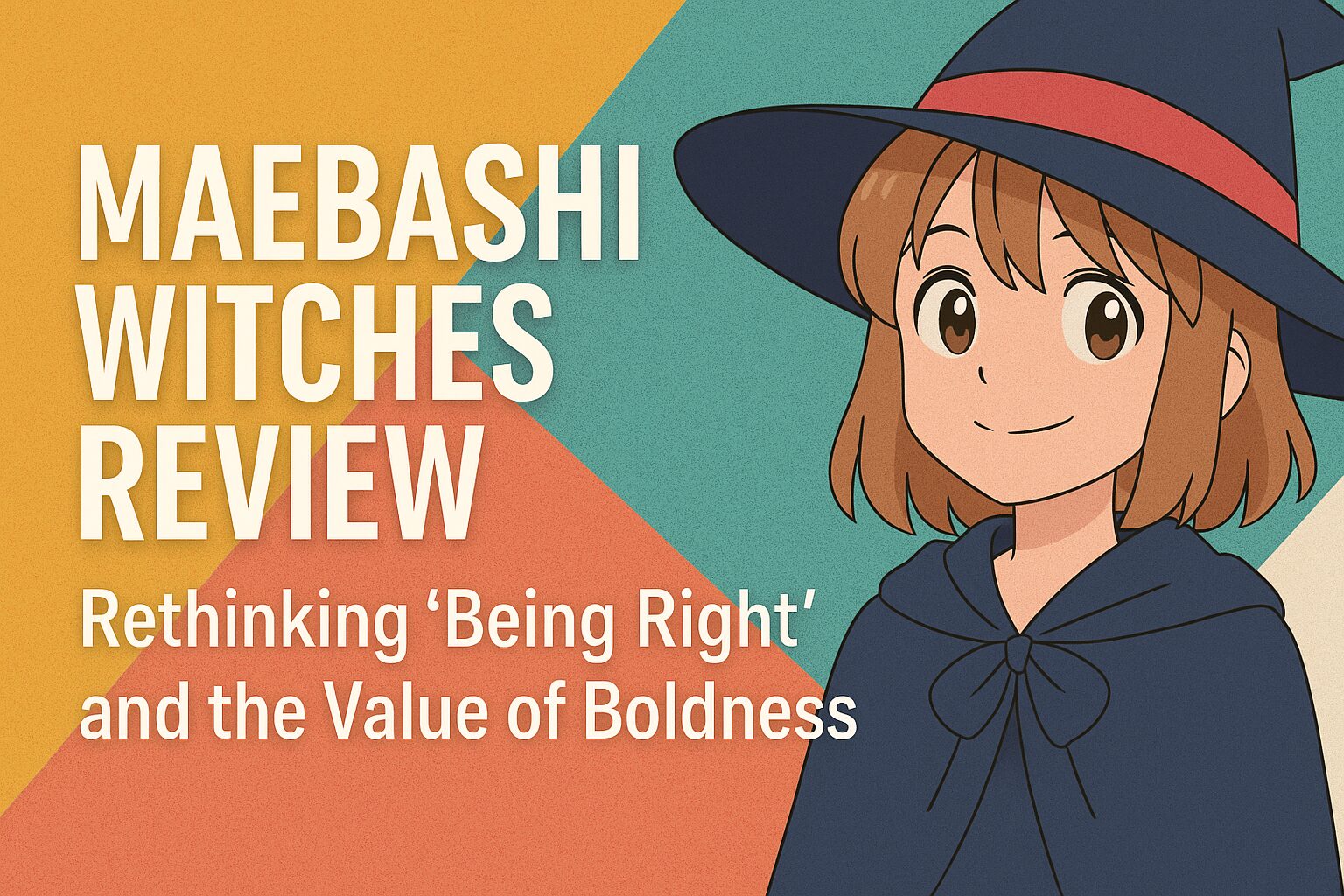Introduction
At first glance, Maebashi Witches seems like a lighthearted coming-of-age story about five high school girls training to become full-fledged witches. With its colorful visuals and magical setting, it looks like a typical “magical girl” anime aimed at younger audiences.
But beneath its pop surface lies an unexpectedly thoughtful exploration of complex themes: the difference between being correct and being right, and the value of a certain kind of boldness—what in Japanese is called zuzushisa, a word that can mean “pushiness” but also “fearless initiative,” depending on context. This review looks at how the show uses its characters and relationships to explore these ideas.
Five Witches-in-Training, Each Carrying a Shadow
One of the show’s strengths is how it grounds real-world struggles in its characters:
- Az: Struggles with self-image due to societal beauty standards (lookism), which fuels self-doubt.
- Mai: Develops an intense dependence on an older sister figure, devoting herself at personal cost.
- Kyouka: A model student who wields social norms and logic as “correctness,” only to bind herself to the same rigid rules.
- Choco: A young caregiver (young carer) balancing household responsibilities and fatigue.
These aren’t exaggerated anime backstories. They mirror social pressures many young people face today, often shaped more by environment and relationships than by individual willpower alone.
People as Both the Source and the Solution
The series underlines a simple paradox: people often cause our stress—those who seem more fortunate, those whose views clash with ours—yet human connection is also what saves us. The five protagonists differ wildly, and precisely because of that, they offer one another perspectives they couldn’t reach alone.
The Protagonist Who Changes the Atmosphere: Yuina
Early on, the group’s dynamic is tense. The atmosphere begins to shift thanks to Yuina, the protagonist. She is cheerful and disarmingly straightforward—almost “too ideal” for real life. That contrast feels intentional: it positions Yuina as someone who brings “anime protagonist” energy into a grounded world. As the story progresses, we learn that her very earnestness isolates her; she doesn’t have real friends. This revelation reframes her brightness as something more complex than simple optimism.
Kyouka’s “Correctness” vs. Yuina’s “Rightness”
One of the series’ most compelling contrasts is between Kyouka and Yuina. Kyouka’s correctness rests on widely accepted rules and social expectations. It’s hard to argue against, but it can become inflexible, leaving little room for empathy or adaptation—even for Kyouka herself.
Yuina’s rightness, by contrast, comes from personal conviction. It can be inconsistent—even contradictory—but that very looseness allows for responsiveness and care. Her approach tends to include rather than exclude; it aims not to leave anyone behind.
The Kind of Boldness We Need Today
Watching Yuina suggests that a measured kind of boldness is necessary for modern relationships. In many societies, “respecting others’ feelings” is sometimes used as a shield to avoid deeper communication. The show argues for something slightly braver: stepping closer when it matters, while still honoring boundaries. Yuina’s persistence—continuing to reach out even after being kept at arm’s length—illustrates how gentle persistence can soften defensiveness over time.
Conclusion: Lighthearted, Yet Quietly Insightful
Maebashi Witches is bright and easy to watch, but it quietly asks serious questions about how we relate to one another. By contrasting correctness with rightness and pairing empathy with measured boldness, it offers a fresh way to think about connection in an age of cautious distance.




コメント